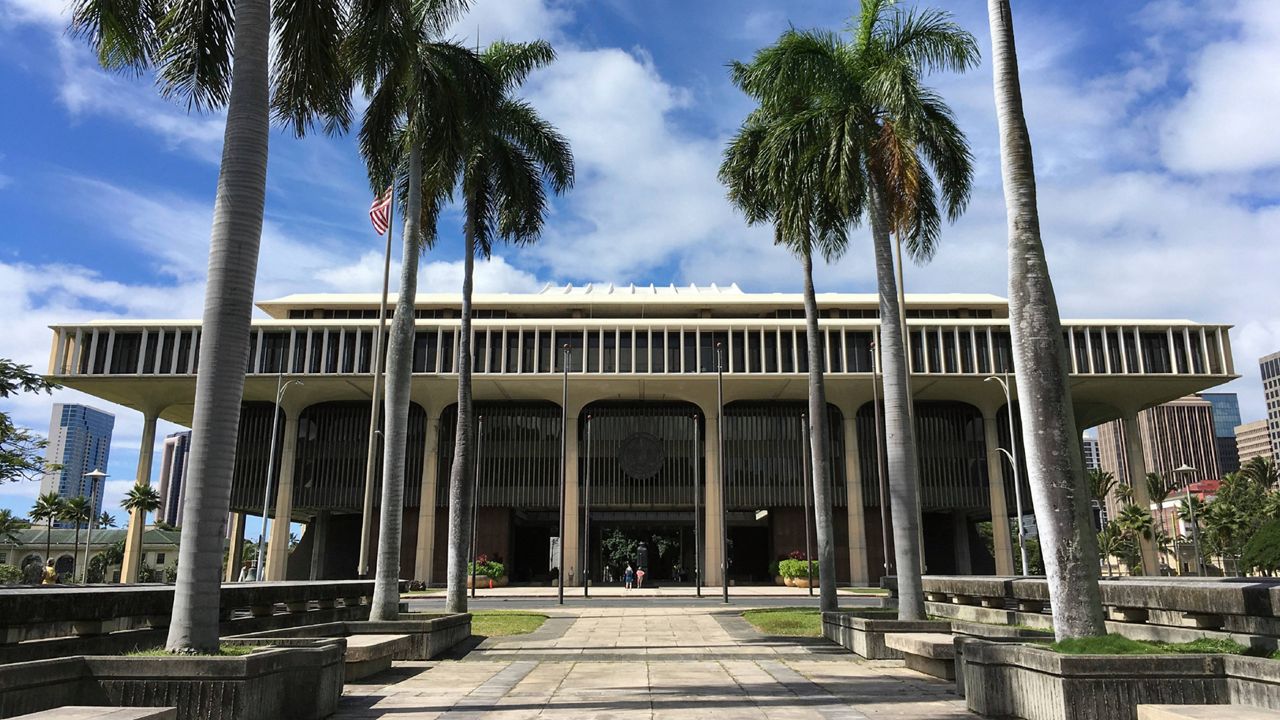The Office of Hawaiian Affairs is turning to the state Legislature to help collect what it considers its fair share of the estimated $394 million derived annually from the Public Land Trust.
As part of its recently unveiled 2022 legislative package, the office is also pushing a bill that would require environmental assessments to consider impacts on socio-economic disparity.
Under the proposed Public Land Trust legislation (House Bill 1474/Senate Bill 2122), the state would be required to direct to OHA $78.9 million, equivalent to 20% of the of the estimated total revenue generated by the lands, annually starting in fiscal year 2022-2023 and maintain an annual accounting of all receipts derived from the trust.
OHA is also seeking an additional lump-sum of $638 million to resolve 10 years of underpayment by the state.
The Public Land Trust, formerly referred to as “ceded lands,” is part of crown and government lands seized the United States in the 1893 overthrow of the Hawaiian monarchy and later deemed a trust for benefit of Native Hawaiians. In the years following annexation and statehood, the lands were used for a broad range of public facilities and institutions, including schools and parks, and also leased to the federal government for military and other use.
OHA itself was established in the 1978 state Constitutional Convention to address the needs of historically disenfranchised Native Hawaiians using funds derived in part from the trust. Two years later, the state set OHA’s share of revenue derived from the trust at 20%.
However, it wasn’t until 2012 when the state transferred to its control some 30 acres at Kakaako Makai, then valued at $200 million, that OHA actually received any of the allotment.
That year, the state reported trust revenues of $150.9 million. An independent review placed actual receipts at greater than $370 million. OHA’s estimate of $394 million, the basis of its current claim, is derived from a second review in 2018.
According to OHA, the state has directed only $15 million per year since 2012, roughly 3.8% of what OHA claims is actually owed. (The annual payments were based on an interim allocation set in 2006 pending a more complete accounting of trust revenues.) The lump-sum payment included in the bill would clear this difference.
The bill calls for collective quarterly payments of $19.75 million and would authorize the governor to “fix the amounts each agency shall transfer to OHA in each quarter by executive order” to ensure proper implementation.
OHA officials were unavailable for comment but during a legislative briefing with the Ways and Means and Hawaiian Affairs committees on Jan. 12, Carmen “Hulu” Lindsey, chair of OHA’s board of trustees, said the proposed legislation is meant to help the office fulfill its obligation to “better the conditions of Native Hawaiians.”
“The Office of Hawaiian Affairs is united, has reorganized and streamlined its operations so that funds will flow to our Native Hawaiian community, and we are ready to receive the long overdue trust funds due Native Hawaiians from the ceded lands the State of Hawaii manages as a trustee,” the statement read.
The other OHA-backed measure, dubbed the Build Back Pono bill (HB1473 and SB2121), is intended to protect the wellbeing of vulnerable communities as the state prepares for its post-pandemic future. The bill states as its purpose “to ensure that agency decisionmakers asses socio-economic disparities of proposed actions as part of the environmental review process.
As defined in the bill, such disparities include significant inequalities “in the relationship between race, socio-economic status, and health.”
Specifically, the bill would amend the section of the Hawaii Revised Statutes relating to environmental impact statements to include the exacerbation of socio-economic disparities within the list of “significant effects” that a project may have on the environment.
For more information on OHA’s 2022 legislative package, visit: oha.org/legislation.
CORRECTION: A previous version of this story incorrectly identified Carmen “Hulu” Lindsey's title. The error has been corrected. (Jan. 25, 2022)



